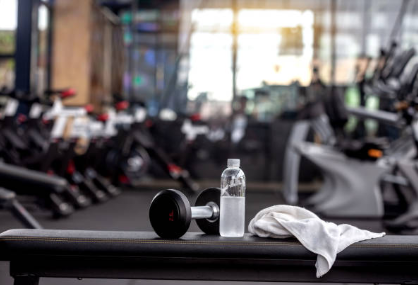How to Get Motivated to Workout
Exercise is vital for weight loss and good health. However, many people view it as a luxury. They may also consider exercise a difficult task. To get motivated to workout, you must first recognize the importance of fitness.

Selfpause Affirmation App
Download the app to get 1,000’s of affirmation meditations and everything you need to write, record and listen to your own.
Setting a deadline
Setting a deadline is a great way to increase your motivation to work out. A deadline forces you to make a decision and creates a sense of urgency. It also creates a sense of accountability. By setting a deadline, you’ll be forced to make a decision that’s right for you.
Taking photos
Taking photos of your progress can help keep you motivated and focused during your workouts. The best way to document your progress is to look at your pictures from different angles and compare them with the ones from earlier sessions. This is especially important if you’re just starting out and you want to see how you’re progressing over time.
Keeping track of your progress

Keeping track of your progress in the gym is an excellent way to stay motivated throughout your fitness journey. It releases dopamine, the hormone that promotes pleasure and satisfaction, and it encourages you to persist in reaching your fitness goals. It can even help to keep you accountable by highlighting the changes you’ve made in your workout routine. Though it may be a tedious task, tracking your progress will provide you with a sense of accomplishment, which is a great motivator.
Keeping track of your progress can also help you to identify problems and plateaus in your workout. By keeping track of your progress, you’ll be able to identify what may be holding you back from your goals and how to fix them. Keeping a workout diary is a great way to stay motivated during tough workouts, and you’ll never have to worry about losing motivation or commitment again.
Keeping track of your progress in the gym is a great way to evaluate your workouts and see how well you’re doing. Moreover, it can help you set benchmarks to gauge your progress. By logging your workouts, you’ll know if you’re overtraining or undertraining yourself. Moreover, if you notice that you aren’t making progress, you can adjust the workout accordingly.
Getting up early

Getting up early for your workout is important if you want to see results. Your body releases Dopamine during physical activity, a hormone that gives you a positive feeling. Also, when you work out, you’ll feel better than your peers. By getting up early, you’ll be less likely to skip your workout.
While it may seem difficult to wake up early for your workout, the benefits of exercising in the morning are worth the effort. The early workout gives you more energy throughout the day and lowers your risk of heart problems. It will also improve your mental health. Getting up early for your workout is essential for a healthy lifestyle.
To get yourself motivated, set an alarm that goes off at an earlier time than normal. Using an alarm is one of the best ways to get out of bed. If you’re not used to this new routine, you can set a second alarm or set your alarm 15 minutes earlier. In a couple of days, you’ll get used to the idea of waking up earlier.
Creating a schedule is another way to make your workout more consistent. For instance, if you tend to miss your workouts, you can plan it so that you exercise at the same time every morning. Whether you’re doing a brisk walk or a vigorous workout, the key is to start a routine early on a daily basis.
Keeping a gym bag with you wherever you go

Having your gym bag with you on the go makes it more convenient to workout whenever you feel like it. Healthy snacks, such as protein bars, are essential to fuel up during and after a workout. You can also bring BCAAs, electrolytes, and protein powder. You should also pack a device charger for your phone or earbuds if you want to listen to music or podcasts. If you want to track your progress, consider a wearable device, such as a heart rate monitor or a fitness tracker.
One of the most powerful motivations is guilt. When you keep your gym bag visible wherever you go, it will serve as a reminder to workout. This is especially effective in the morning, when you have to get dressed and head out for work or school. Also, it will save you time and energy.
When preparing for a workout, it is important to make sure you bring the right equipment. A good fitness towel prevents others from sweating on your equipment. It also provides cooling benefits. Lastly, a gym towel should be light and compact. It is also a good idea to invest in a gym locker lock so your valuables are safe. A gym can be a notorious hotspot for thieves.
Rewards
One of the most effective ways to increase motivation to work out is by rewarding yourself with something. You can make the reward personal to your personality, which will help you adjust to a new routine and task. For instance, you might decide to give yourself a t-shirt or candy bar after you finish a tough workout.
Another way to boost motivation is to set small goals and establish healthy routines. You should also examine your values and try to identify what matters to you. You should set goals that are aligned with your values and norms. It is also important to acknowledge your friends’ achievements when you see them in the gym.
Self-efficacy

Self-efficacy is an important factor when it comes to motivation for exercise. While this may not be the only factor, it can help to improve the confidence and motivation of clients, especially those who have physical limitations. One recent study investigated the relationship between exercise self-efficacy and physical barriers to exercise.
The results of the study suggested that the more exercise self-efficacy, the greater the motivation to work out. Similarly, the lower the self-efficacy, the lower the motivation to exercise. This research has implications for both physical and psychological health and for treatment and education.
Researchers have shown that enjoyment of an activity affects motivation to exercise and engagement, and these factors may have a causal relationship with exercise self-efficacy. For example, in a study of young people who were engaged in physical activities, the study found that greater enjoyment of physical activities predicted higher self-efficacy.
In another study, Bandura and colleagues used the Exercise Self-efficacy Malay (ESE-M) questionnaire to measure self-efficacy for physical activity. The questionnaire contains 18 items on a 5-point Likert scale. The questionnaire was translated into English using forward and backward procedures. The questionnaire was later tested against various populations to ensure its validity and reliability.
Our Top FAQ's
There are many different strategies that people find effective for finding motivation to work out. Here are a few ideas to consider:
-
Set specific, achievable goals: Having a clear goal in mind can help you stay focused and motivated. Make sure your goals are specific and achievable, so you can track your progress and see the results of your hard work.
-
Find a workout buddy: Working out with a friend or family member can be a great way to stay motivated. You can hold each other accountable, push each other to work harder, and have someone to share your progress with.
-
Mix things up: If you’re feeling bored with your workouts, try changing things up by trying new exercises or activities. This can help keep you engaged and motivated.
-
Treat yourself: Reward yourself for reaching your fitness goals, or simply for putting in the effort to work out. This can help you stay motivated and feel good about your progress.
Staying motivated to exercise on a consistent basis can be a challenge, but there are a few things you can try to help you stay on track:
-
Make a schedule: Set aside specific times each week for your workouts, and try to stick to it as closely as possible. This can help you establish a regular exercise routine.
-
Find activities you enjoy: If you hate running on a treadmill, try a different form of cardio like cycling or swimming. The more you enjoy your workouts, the more likely you’ll be to stick with them.
-
Vary your workouts: Doing the same workouts all the time can get monotonous, so try mixing things up by trying different exercises or activities. This can help keep you motivated and engaged.
-
Get support: Surround yourself with supportive people who will encourage you to stay active and healthy. This can be a great way to stay motivated and accountable.
It’s natural to feel bored or frustrated with your workouts from time to time, but there are a few things you can try to help overcome these feelings:
-
Find activities you enjoy: If you’re feeling bored with your workouts, try finding activities that you enjoy. This could be anything from dancing to hiking to yoga.
-
Mix things up: Varying your workouts can help keep things interesting and prevent boredom. Try new exercises or activities, or switch up your routine.
-
Set achievable goals: Having specific, achievable goals can help you stay motivated and focused. As you reach your goals, you’ll feel a sense of accomplishment and be more likely to stay engaged with your workouts.
-
Get support: If you’re feeling frustrated with your workouts, try getting support from a friend, family member, or personal trainer. Having someone to encourage you and offer guidance can be a great way to overcome frustration and stay motivated.
Setting realistic and achievable fitness goals is an important part of staying motivated. Here are a few tips for setting goals that will keep you motivated:
-
Be specific: Instead of setting a vague goal like “lose weight,” set a specific goal like “lose 5 pounds in the next month.” Specific goals are easier to track and measure, so you can see your progress more clearly.
-
Make them achievable: It’s important to set goals that are challenging but still achievable. If your goals are too difficult, you may become discouraged and lose motivation. On the other hand, if your goals are too easy, you may not feel challenged or motivated to push yourself.
-
Set short-term and long-term goals: It can be helpful to set both short-term and long-term goals. Short-term goals can help you stay focused and motivated in the present, while long-term goals can provide a bigger picture of what you want to achieve.
-
Write them down: Putting your goals in writing can help you stay focused and motivated. Consider creating a fitness journal or planner to track your progress and stay on track.
-
Get support: It can be helpful to share your goals with a friend, family member, or personal trainer. Having someone to support you and offer encouragement can be a great way to stay motivated.
Incorporating fitness into your daily routine can be a great way to make exercise a consistent and enjoyable part of your life. Here are a few tips to help you make fitness a habit:
-
Find activities you enjoy: If you hate running on a treadmill, you’re not likely to stick with it for very long. Instead, find activities that you enjoy, whether it’s dancing, swimming, or yoga. The more you enjoy your workouts, the more likely you’ll be to stick with them.
-
Make a schedule: Set aside specific times each week for your workouts, and try to stick to it as closely as possible. This can help you establish a regular exercise routine.
-
Vary your workouts: Doing the same workouts all the time can get monotonous, so try mixing things up by trying different exercises or activities. This can help keep you motivated and engaged.
-
Find a workout buddy: Having a friend or family member to work out with can be a great way to stay motivated. You can hold each other accountable, push each other to work harder, and have someone to share your progress with.
-
Get support: Surround yourself with supportive people who will encourage you to stay active and healthy. This can be a great way to stay motivated and accountable.
Remember, it takes time and effort to develop a new habit, so be patient with yourself and don’t get discouraged if you don’t see immediate results. The key is to find activities that you enjoy and make them a consistent part of your routine.
